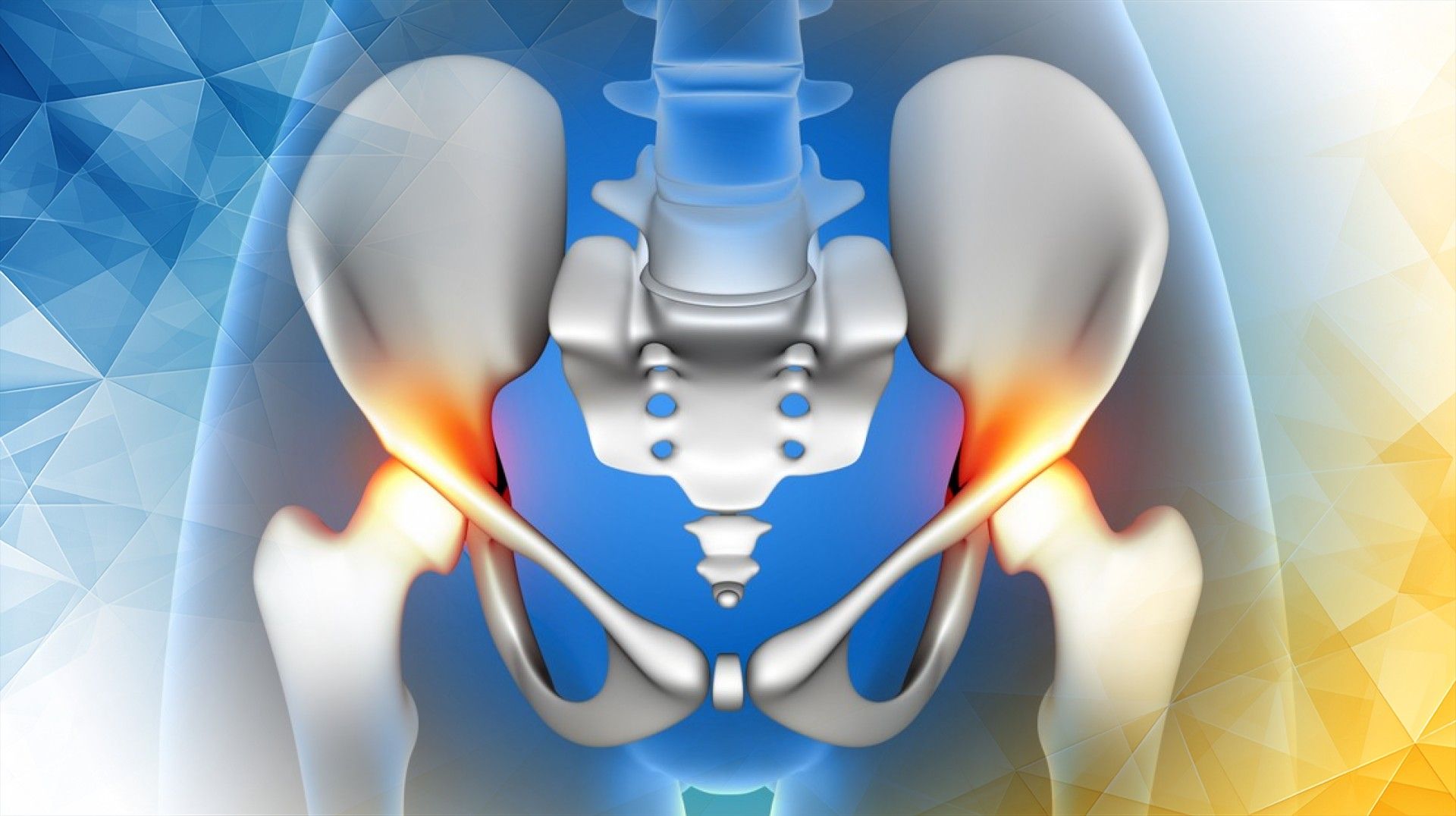



An ectopic pregnancy occurs when a fertilized egg implants outside the uterus, most often in the fallopian tubes. This is a medical emergency, with symptoms usually including a missed period, lower abdominal or pelvic pain, and abnormal vaginal bleeding. These warning signs typically send women to the doctor quickly. But in some rare cases, the pain doesn’t show up in the pelvis at all—instead, it appears in the hip. This unexpected symptom can cause confusion , delay diagnosis, and ultimately put women at serious risk. This article explores why ectopic pregnancies can sometimes cause hip pain, why that makes diagnosis trickier, and what it means for treatment. By raising awareness of these unusual signs, we hope to encourage faster recognition and safer care.
Ectopic pregnancies generally follow a clear pattern: a missed period, pain around the lower abdomen, and irregular or abnormal vaginal bleeding. This happens because the fertilized egg is implanted where it can’t develop properly, irritating nearby tissues. According to one study, 87.5% of women reported missed periods, 81.3% experienced abdominal pain, and 68.8% noted vaginal bleeding (Qayyum & Wahab, 2025).
However, not every case fits this mold. Sometimes, the pain is felt in the hip rather than the pelvis . How is that possible? The answer lies in a phenomenon called referred pain. Because the nerves supplying the pelvis and the hip often overlap, a problem in the pelvis—like an ectopic pregnancy—can sometimes be felt in the hip instead.
Medical reports describe rare cases where hip pain was the main symptom of an ectopic pregnancy , proving that the location of pain can vary more than expected. The clinical spectrum of ectopic pregnancy is broad, ranging from barely noticeable discomfort to life-threatening emergencies (Qayyum & Wahab, 2025). Recognizing these less obvious symptoms can ensure that ectopic pregnancy is on the list of possible causes—even when the pain isn’t in the most expected location.
When a woman comes to the doctor with hip pain, common causes like muscle strain, arthritis, or joint issues usually top the list. Ectopic pregnancy is rare by comparison and might not be on the radar right away.
That’s where careful questioning becomes essential. Doctors need to ask about the menstrual cycle, unusual bleeding, and any subtle clues that might point toward pregnancy. Tests such as transvaginal ultrasound—an imaging scan that examines the uterus and nearby structures—and blood tests for the pregnancy hormone hCG are crucial to confirming or ruling out ectopic pregnancy.
Timing is also key. Early ectopic pregnancy symptoms usually start about five weeks after the last period begins. If hip pain appears in this timeframe, particularly alongside other concerns, it should raise suspicion.
Missing or dismissing these signs can have dangerous consequences. A delayed diagnosis increases the risk of the fallopian tube rupturing and causing severe internal bleeding. That’s why it is so important to consider ectopic pregnancy whenever a woman of childbearing age presents with unexplained hip pain .
Catching an ectopic pregnancy early greatly improves the chances for safe, effective treatment . When diagnosed soon enough, many cases can be treated with medication (like methotrexate) that stops the pregnancy tissue from growing—no surgery required.
But if the ectopic pregnancy is discovered late, or if the condition worsens suddenly, surgery may be needed. Recognizing unusual symptoms like hip pain can help make sure women get help before major complications arise.
Often, managing these cases requires a collaborative team: obstetricians, radiologists, and sometimes pain specialists to confirm the diagnosis and create a treatment plan that fits best. While hip pain alone isn’t proof of ectopic pregnancy, it’s definitely a reason to look closer if paired with any other potential warning signs or risk factors.
Most people associate ectopic pregnancy with pelvic pain and unusual bleeding, but hip pain can also be a surprising and important symptom. Understanding that pain can be “referred” from the pelvis to the hip helps doctors and patients think more broadly—and act more quickly. Increased awareness of these atypical symptoms can lead to faster diagnosis , safer treatment, and better outcomes. As research continues and clinical guidelines improve, staying alert to both classic and unusual signs remains crucial for the best patient care.
Yes, hip pain can sometimes be a sign of ectopic pregnancy. This unusual symptom arises because the nerves serving the pelvis and hip overlap, causing “referred pain.” At London Cartilage Clinic, Prof Lee’s expertise ensures that even rare symptom patterns like this are assessed thoroughly for prompt diagnosis.
Diagnosing ectopic pregnancy when hip pain is the main symptom can be difficult because doctors usually consider joint or muscular injuries first. At London Cartilage Clinic, Prof Lee’s experience in musculoskeletal and gynaecological conditions helps ensure atypical presentations are considered seriously, improving the chances of rapid, accurate diagnosis and timely care.
To confirm ectopic pregnancy, especially with symptoms like hip pain, blood tests for pregnancy hormone hCG and advanced imaging such as transvaginal ultrasound are essential. Prof Lee and his team at London Cartilage Clinic use the latest diagnostic technologies and their multidisciplinary expertise for clear and reliable answers, even in complex cases.
Early recognition allows for safer, less invasive treatments such as medication, reducing the need for surgery. At London Cartilage Clinic, Prof Lee’s attentive clinical approach means symptoms like hip pain are not missed, helping patients receive swift, effective treatment and minimising the risk of dangerous complications and lengthy recovery times.
London Cartilage Clinic offers specialist, collaborative care led by Prof Lee, a leader in treating both musculoskeletal and gynaecological conditions. His experience with rare presentations like hip pain from ectopic pregnancy ensures that all possible causes are investigated, bringing confidence and safety to patients seeking diagnosis and treatment.
All our treatments are selected to help patients achieve the best possible outcomes and return to the quality of life they deserve. Get in touch if you have any questions.
At London Cartilage Clinic, we are constantly staying up-to-date on the latest treatment options for knee injuries and ongoing knee health issues. As a result, our patients have access to the best equipment, techniques, and expertise in the field, whether it’s for cartilage repair, regeneration, or replacement.
For the best in patient care and cartilage knowledge, contact London Cartilage Clinic today.
At London Cartilage Clinic, our team has spent years gaining an in-depth understanding of human biology and the skills necessary to provide a wide range of cartilage treatments. It’s our mission to administer comprehensive care through innovative solutions targeted at key areas, including cartilage injuries. During an initial consultation, one of our medical professionals will establish which path forward is best for you.
Contact us if you have any questions about the various treatment methods on offer.
Legal & Medical Disclaimer
This article is written by an independent contributor and reflects their own views and experience, not necessarily those of londoncartilage.com. It is provided for general information and education only and does not constitute medical advice, diagnosis, or treatment.
Always seek personalised advice from a qualified healthcare professional before making decisions about your health. londoncartilage.com accepts no responsibility for errors, omissions, third-party content, or any loss, damage, or injury arising from reliance on this material. If you believe this article contains inaccurate or infringing content, please contact us at [email protected].